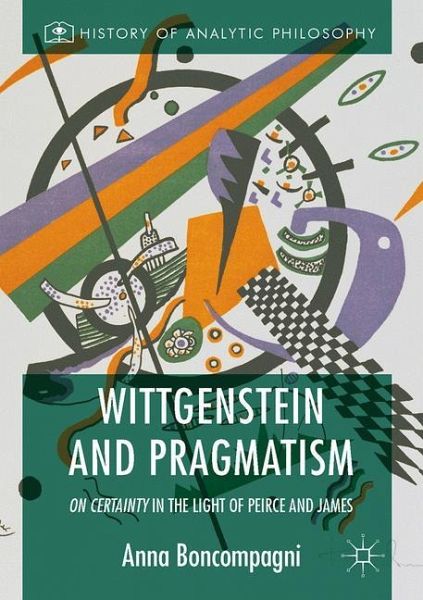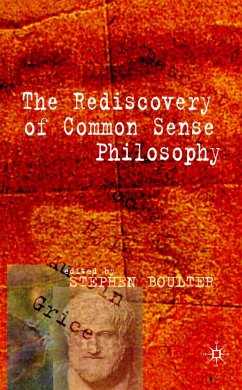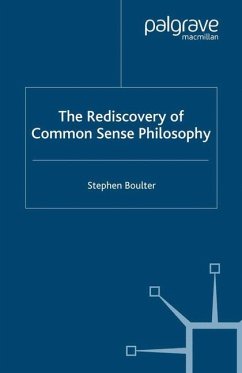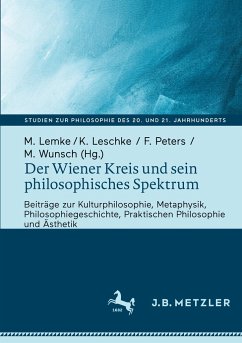
Wittgenstein and Pragmatism
On Certainty in the Light of Peirce and James
Versandkostenfrei!
Versandfertig in 6-10 Tagen
98,99 €
inkl. MwSt.
Weitere Ausgaben:

PAYBACK Punkte
49 °P sammeln!
This book investigates the conflicts concerning pragmatism inWittgenstein's work On Certainty, through a comparison with thepragmatist tradition as expressed by its founding fathers Charles S. Peirceand William James. It also describes Wittgenstein's first encounters withpragmatism in the 1930s and shows the relevance of Frank Ramsey in thedevelopment of his thought. Offering a balanced, critical and theoreticalexamination the author discusses issues such as doubt, certainty, commonsense, forms of life, action and the pragmatic maxim. While highlightingthe objective convergences and divergence...
This book investigates the conflicts concerning pragmatism in
Wittgenstein's work On Certainty, through a comparison with the
pragmatist tradition as expressed by its founding fathers Charles S. Peirce
and William James. It also describes Wittgenstein's first encounters with
pragmatism in the 1930s and shows the relevance of Frank Ramsey in the
development of his thought. Offering a balanced, critical and theoretical
examination the author discusses issues such as doubt, certainty, common
sense, forms of life, action and the pragmatic maxim. While highlighting
the objective convergences and divergences between the two approaches,
the volume makes links to ongoing debates on relativism, foundationalism,
scepticism and objectivity. It will be of interest to anyone searching for new
perspectives on Wittgenstein's philosophy.
Wittgenstein's work On Certainty, through a comparison with the
pragmatist tradition as expressed by its founding fathers Charles S. Peirce
and William James. It also describes Wittgenstein's first encounters with
pragmatism in the 1930s and shows the relevance of Frank Ramsey in the
development of his thought. Offering a balanced, critical and theoretical
examination the author discusses issues such as doubt, certainty, common
sense, forms of life, action and the pragmatic maxim. While highlighting
the objective convergences and divergences between the two approaches,
the volume makes links to ongoing debates on relativism, foundationalism,
scepticism and objectivity. It will be of interest to anyone searching for new
perspectives on Wittgenstein's philosophy.












